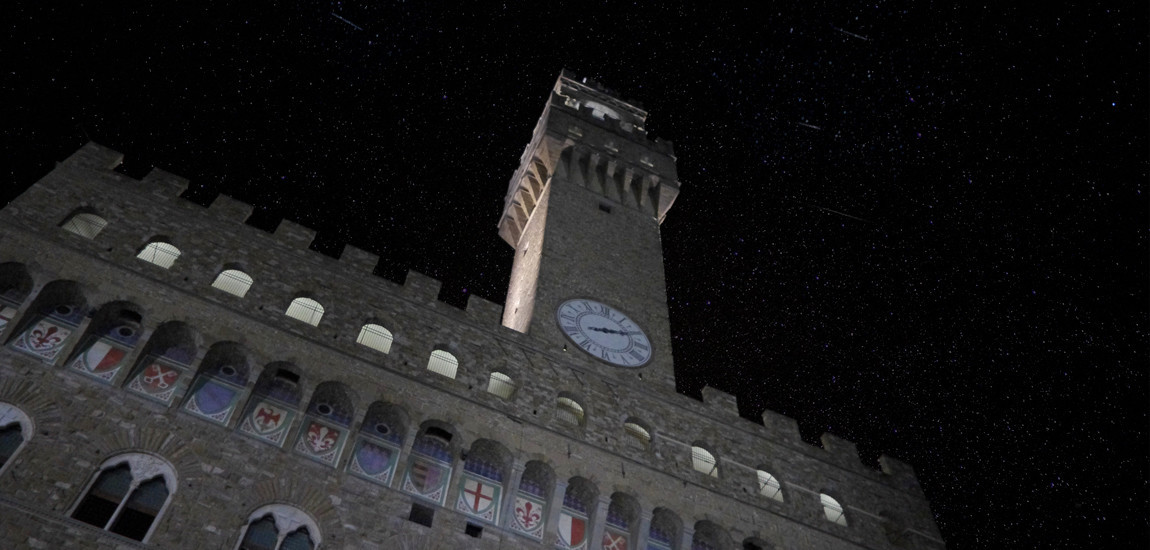
Shooting stars and the night of San Lorenzo
The shooting stars visible to the naked eye on the night of San Lorenzo are called Perseids, as they come from the constellation of Perseus. They form a meteor shower that the Earth passes through in the summer, during its orbit around the sun. Visible from the end of July to the end of August, in the past the meteor shower reached its peak of intensity between August 10 and 12, although with the passing of the centuries this period is moving forward by a few days to August 12-13.
ANCIENT
TIMES AND CHRISTIAN TRADITION
The first observations of the
Perseids date back to 36 AD., thanks to astronomical studies carried out in
China.
Once considered as divine signs,
shooting stars were interpreted in various ways by the different populations of
the world, but they were almost always seen as ominous signs. For example, in
Sparta, the king was subjected to the judgment of the stars every 9 years: if
during the ninth year a shooting star was sighted, this was considered an
unfavorable sign sent by the gods and therefore the king was deposed.
Today this night is called the night of San Lorenzo because the phenomenon of shooting stars
was connected to the martyrdom of the saint which took place in 258 AD.
Lorenzo was one of the seven deacons
of Rome, he was 33 when he was martyred. Following an edict issued by the Roman
emperor Valerian according to which all bishops, presbyters and deacons were to
be put to death, he was burned on the gridiron.
Legend has it that during this
torture the saint turned to his captors and declared: "Turn me around, I'm already cooked on this
side!".
The sparks from the gridiron were
later associated with the shooting stars observable in the period around which
the saint was martyred. Thus was born the tradition of the night of San
Lorenzo.
SAN
LORENZO IN FLORENCE
San Lorenzo has always had a special
place in the hearts of Florentines, so much so that what is considered the
first Florentine basilica was dedicated to him.
In medieval Florence it was
customary to celebrate San Lorenzo by roasting quarters of ox on the embers,
and then distributing them to the people. According to some, precisely from
this tradition connected to the night of San Lorenzo, was born the famous bistecca alla fiorentina (Florentine steak), one of the local traditional
dishes.
Apparently, a few English merchants
passing through Florence during these celebrations asked for the juicy slices
of beef exclaiming "Beef steak!", an expression then transposed into
Florentine with "bistecca”.
MAKE A WISH
Nowadays the reason why observing the night sky in August is so fascinating is
also the possibility to make a wish if
you see a shooting star. This tradition could have several origins. It
could be linked to ancient Rome and De Bello Gallico, where Cesare minutely
described his military campaign. In the text, the "desiderantes" were the soldiers who waited under the stars for
their comrades who had not yet returned from the battle that took place during
the day, hoping to see them again.
It could also be a tradition born at
sea, where sailors were guided by the stars hoping to sight land soon.
In the Christian tradition, however,
the shooting star is the one that guides the Magi towards the Child Jesus, the
only hope of redemption for humanity.
Whatever the origin of this custom
was, it became a beloved summer tradition. The shooting stars shower is a
phenomenon that has fascinated manking since ancient times, and that has
inspired numerous works of art and poetic verses, such as the very famous ones
by Giovanni Pascoli, who in his poem X
Agosto interprets the rain of stars as celestial tears.
There really is something magical
about sending our wishes to the stars, which seem to listen and respond, if
you're lucky, with a sign.



